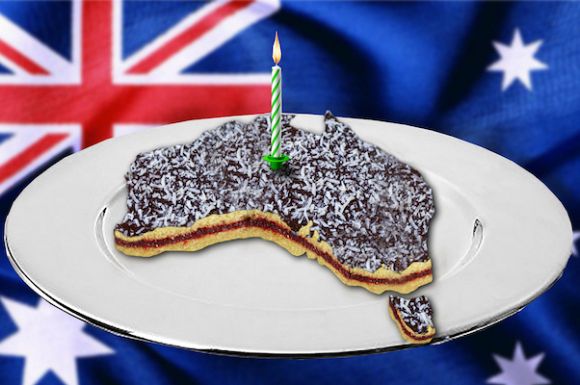The historical context of the establishment Australian Constitution in 1901, which is one of unadulterated racism, shows why wholesale change is required, writes Dr Klaas Woldring.
THE VOICE CAMPAIGN has shown up more than ever that Australians are seriously ignorant about its 1901 colonial Constitution. To remedy that, the ABC could organise educational programs. The public broadcaster could begin a campaign stretching well beyond the Voice referendum.
In the longer term, high school and university programs should catch up with this astonishing neglect. If we finally end up with a Republic serious major educational revision that would require proper preparation and time will have to be undertaken. Just replacing the British monarch with an elected president with this archaic, even racist Constitution is beginning to look ridiculous, frankly.
The Voice campaign, which has revealed just how little the average Australian knows about this Constitution, has had the rather unexpected result of revealing the inadequate knowledge of the country's Constitution. It was Alfred Deakin, the second PM, who did most of the work towards the federal Constitution, enacted in fact by the British Parliament in 1901.
Deakin was entirely in favour of a White Australia and saw the Indigenous people as a race that would disappear over time altogether. In the same year, the Immigration Restriction Act became law. It meant the prohibition of all "alien" non-European immigration was prohibited. It also meant 'the deportation or reduction of the number of aliens now in our midst'. That "white Australia" essentially meant a British White Australia so much so that by 1947 only, 2.7% of the population was actually born outside Australia, Ireland, and the UK.
Not surprisingly, when the influx of British dried up, Australia began to encourage other white Europeans to join the population. It began to become much more multicultural but still white. The small Asian population had shrunk to around 0.21% by the late 1940s. The 1967 referendum, the Mabo judgment of 1992, the Wik judgment of 1996 and the 2008 apology to the Stolen Generations ended the spirit of colonial rule. But the Australian Constitution could hardly be updated.
Nevertheless, there have been major attitude changes toward the Indigenous population in recent years. These are totally at variance with the Constitution and the white Australia policy, prior to WWII. But it has been virtually impossible to amend the Constitution and, as former ALP minister Barry Jones has explained recently. He argues that 'small-c constitutional practice', also known as "the system", replaced in practice constitutional shortcomings. In actual fact, one could argue that what we have in Australia now is "government by judges", whose status in society has risen to the top.
But more elaborate education about the Constitution, while essential, will very quickly make the society understand how inadequate this document, this set of ground rules, have become. It is certainly not at all enough to make people aware of what is in it. They would certainly discover how necessary it is to rewrite it.
'The document the colonists voted for makes no reference to democracy, democratic practice or the system of responsible government,' he noted. Society gradually learnt to work around the Constitution, one could say, as best as they could. There is a lot more that has been noted by several progressive constitutional lawyers for the last 30 years.
Constitutional law professor George Williams wrote:
'The text of the Constitution does not match political reality because it is premised upon an understanding of the Westminster system of government operating in the United Kingdom.'
There is a serious problem with the major political parties not acting on widespread, well-informed and sustained criticism of the Constitution. The system by which our politicians are elected doesn't help. The Westminster practice of appointing ministers only from the elected MPs promotes amateurism. Prime Minister Bob Hawke also made the point several times that the pool from which ministers are elected is far too small.
Hawke also spoke many times in favour of abolishing the federal system but both the ALP and the Coalition failed in this regard as well.
The Constitution doesn’t serve the economy well either. Although High Court interpretations have enabled the Federal Parliament to control and regulate the national economy, the federal vision contained in the Constitution is now inconsistent with modern understandings of the Australian economy.
The Constitution is almost totally deficient in the areas of social justice and human rights. The framers of the Constitution chose to rely on the operation of the common law, but it is now quite widely accepted that this is indeed very inadequate.
Williams argued:
'The Constitution suggests that Australia is not an independent nation.'
Surely, this is the very opposite of an independent Republic.
There is no bill of rights, no recognition of the importance of the environment and the Constitution does not state that the Government derives its authority from the people’s sovereignty either. Constitutional conventions should all be codified.
A democratic electoral system needs to be adopted and anchored in the Constitution.
While the Voice would be a major positive addition to the Constitution a majority for the "yes" vote could still be blocked by the operation of section 128. Deakin, a federalist, provided for the additional majority; four of the six states need to be in favour as well. This is a nonsensical requirement.
Dr Klaas Woldring is a former associate professor at Southern Cross University and former convenor of ABC Friends (Central Coast).
Related Articles
- 'No' campaign built on lies and misinformation
- Murdoch's commentators poisoning Voice debate
- EDITORIAL: Albanese's Voice to parliament referendum should be a no-brainer
 This work is licensed under a Creative Commons Attribution-NonCommercial-NoDerivs 3.0 Australia License
This work is licensed under a Creative Commons Attribution-NonCommercial-NoDerivs 3.0 Australia License
Support independent journalism Subscribe to IA.














